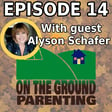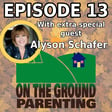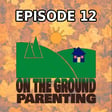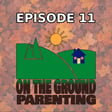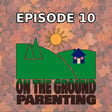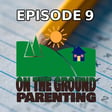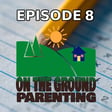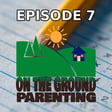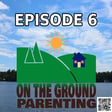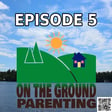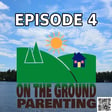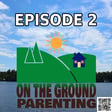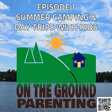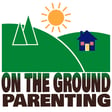
Getting Outdoors: Intentionality, Art, & Cues: Summer Series - On The Ground Parenting Podcast Episode 3
Comments, questions, donations and epsiode ideas! https://linktr.ee/onthegroundparenting
Join the hosts of On the Ground Parenting, Sandy Inkster, Samantha Ennest-Wallis, and Kelly Armstrong, as they discuss the benefits of getting outside with your family. The hosts share research that suggests just two hours of outdoor time a week can reduce anxiety and lower blood pressure.
We talk practical strategies for getting outdoors, suggesting taking indoor activities like art outside. We share fun ideas, from watercolour painting and using natural materials for art projects to leaving "little mini kits" in a backpack for spontaneous activities. A key theme is the balance between encouraging kids to try new things and respecting their comfort level, using personal anecdotes about a ropes course and canoe dumping to illustrate this delicate dance. The episode concludes with a reminder to be open to trying things outdoors without judging the outcome and to be attentive to both your child's and your own emotional cues.
In This Episode:
[01:25] Benefits of Being Outdoors
[03:12] Research on Outdoor Time for Kids
[05:01] Taking Indoor Activities Outside
[09:40] Planning and Preparedness
[14:44] The Dance of Pushing & Backing Off
[17:51] Learning Limits: Ropes Courses & Canoes
[19:01] Final Takeaways: Noticing Cues
redjuicestudio.com
